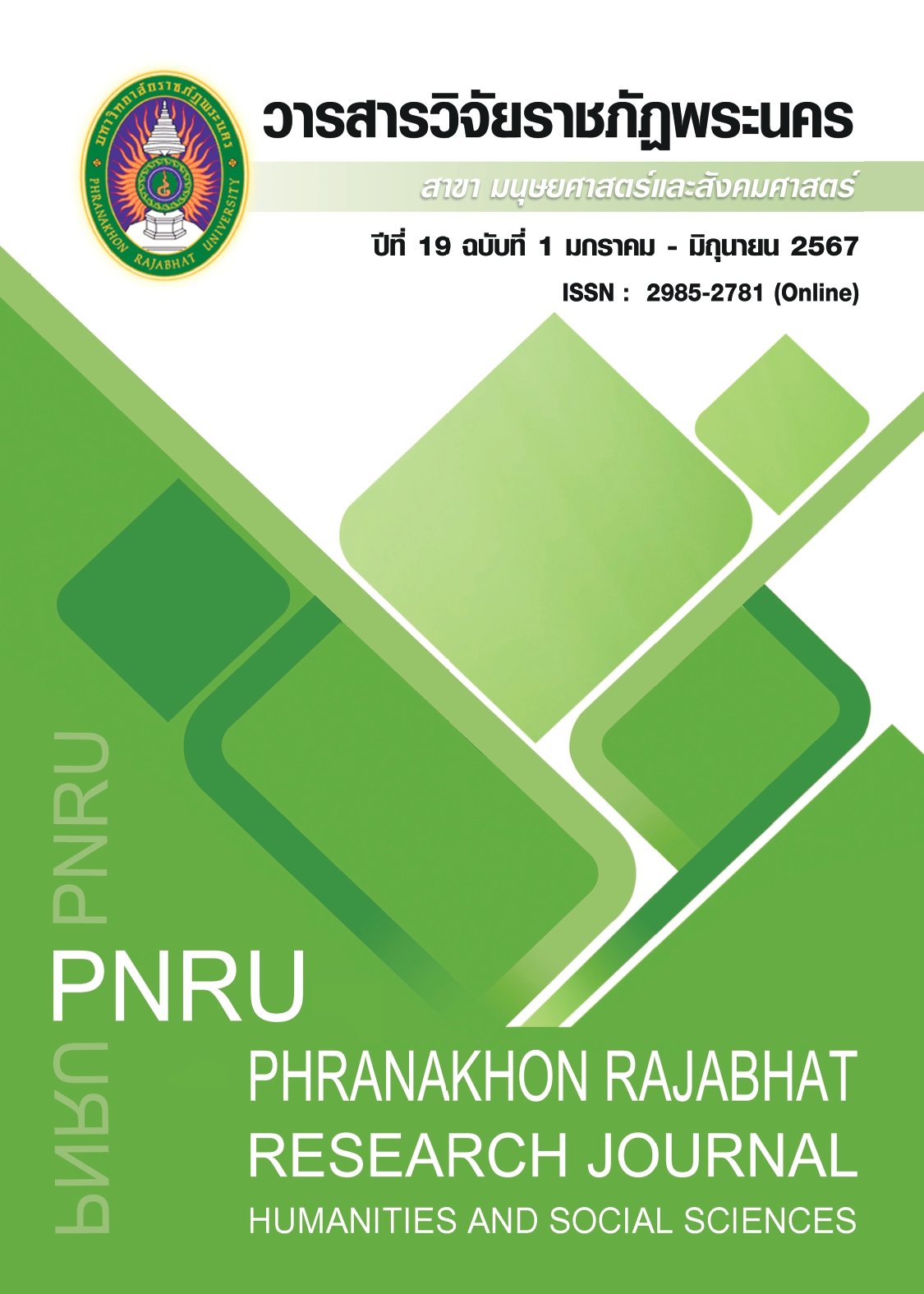ความท้าทายและข้อเสนอต่อการบริหารทรัพยากรมนุษย์ภาครัฐยุคใหม่
Main Article Content
บทคัดย่อ
ความท้าทายในการบริหารทรัพยากรมนุษย์ภาครัฐยุคใหม่ส่งผลสำคัญต่อทิศทางและความสำเร็จขององค์กร ดังนั้นจึงจำเป็นต้องหาแนวทางการจัดการกับความท้าท้ายที่เกิดขึ้น เพื่อให้องค์กรบรรลุเป้าหมาย บทความวิชาการนี้จึงมีวัตถุประสงค์เพื่อศึกษาความท้าทายของการบริหารทรัพยากรมนุษย์ภาครัฐยุคใหม่ และนำเสนอข้อเสนอแนะการจัดการกับความท้าทายที่อาจเกิดขึ้น ผลการวิเคราะห์พบว่าการบริหารทรัพยากรมนุษย์ภาครัฐมี 4 หลักการสำคัญ คือ หลักความสามารถ หลักความเสมอภาค หลักความมั่นคงในตำแหน่งหน้าที่ และหลักความเป็นกลางทางการเมือง และความท้าทายในการบริหารทรัพยากรมนุษย์ภาครัฐยุคใหม่ คือ ความก้าวหน้าทางเทคโนโลยีสารสนเทศ ความท้าทายด้านเจเนอเรชั่น วัฒนธรรมและสภาพแวดล้อมในองค์กร การเปลี่ยนแปลงทางด้านประชากร การจูงใจกลุ่มบุคลากรที่มีศักยภาพสูงในการทำงาน และการรักษาบุคลากรให้อยู่กับองค์กรได้นาน โดยข้อเสนอแนะต่อความท้าทาย คือ เพิ่มศักยภาพของบุคลากรให้เท่าทันความก้าวหน้าทางเทคโนโลยี การเรียนรู้ลักษณะพื้นฐานของบุคลากรแต่ละเจเนอเรชั่น
การปรับปรุงวัฒนธรรมขององค์กรอยู่เสมอ การกำหนดสมรรถนะการทำงานของบุคลากร การเพิ่มโอกาสให้บุคลากรในทุกระดับได้แสดงศักยภาพ รวมถึงการปรับปรุงภาพลักษณ์ขององค์กรภาครัฐให้มีความทันสมัย
Article Details

อนุญาตภายใต้เงื่อนไข Creative Commons Attribution-NonCommercial-NoDerivatives 4.0 International License.
บทความที่ได้รับการตีพิมพ์เป็นลิขสิทธิ์ของมหาวิทยาลัยราชภัฏพระนคร
ข้อความที่ปรากฏในบทความแต่ละเรื่องในวารสารวิจัยราชภัฏพระนครเล่มนี้เป็นความคิดเห็นส่วนตัวของผู้เขียนแต่ละท่านไม่เกี่ยวข้องกับมหาวิทยาลัยราชภัฏพระนคร และคณาจารย์ท่านอื่นๆในมหาวิทยาลัยฯ แต่อย่างใด ความรับผิดชอบองค์ประกอบทั้งหมดของบทความแต่ละเรื่องเป็นของผู้เขียนแต่ละท่าน หากมีความผิดพลาดใดๆ ผู้เขียนแต่ละท่านจะรับผิดชอบบทความของตนเองแต่ผู้เดียว
เอกสารอ้างอิง
Arunwet, T. (2017). Personnel management according to the meritocracy and patronage system. Retrieved from https://thawin09.blogspot.com/2017/06/blog- post_23.html?m=1 [2023, 2 Aug.]
Charoenthong, S. (2021). Personnel management in schools according to Sangkhahavatthu principles 4. MCU Journal Kanchana Review, 1(1), 29-42. (In Thai)
Chueasraku, C. (2018). Strategic management: challenges and suggestions for management Human resources of government organizations. Journal of Politics and Governance, 9(2). (In Thai)
Deethong, S. (2020). Variables that affect the happiness at work of Gen Y people. Academic Journal of the Phra Wittayakorn Development Institute, 3(2), 71-80. (In Thai)
Khunthongchan, S. (2016). Integrated human resource management. Bangkok: SE-ED Education.
Kwanthong, K. (2013). Moral system and patronage system. Retrieved from https://www.gotoknow.org/posts/324159?fbclid=IwAR1-09FieRIhSldkrioxB23OmdnU- [2023, 2 Oct.]
Mongkol, K. (2021). Strategic foresight under crisis. MBA-KKU Journal,14(1),1-11 (In Thai)
Moolsin, N. (2019). Strategic management and personnel management of schools under its jurisdiction.Phra Nakhon Si Ayutthaya Primary Educational Service Area Office, Area 1. Administrative field Journal of Educational Administration Silpakorn University, 10(1), 243-254. (In Thai)
Na Nakhon, P. (2012). Protection of the moral system. Retrieved from
http://203.155.220.238/csc/images/Files/files/lean/590711_merit_system.pdf
, 2 Aug.]
Paliphatrangkura, K. (n.d.). Morality and personnel management. Retrieved from https://www.bu.ac.th/knowledgecenter/executive_journal/jan_mar_08/pdf/EXECUTIVE%20JOURNAL28_1_59-62จัดการทรัพยากรมนุษย์.pdf [2023, 2 Oct.]
Punnon, P. (2018). The Involvement of local leaders in managing the work of
PrathumtaniProvincial Administrative Organization and Nonthaburi Province. Journal of Management Science Nakhon Pathom Rajabhat University, 4(2), 251-260. (In Thai)
Pho-ong, P. (2018). Digital human resources and optimizing recruitment in a retail business in Thailand. (Master of Business Administration). Thammasat University.
Phuengwiwatnikul, V. (2019). Lecture documents for the human resource management course. Bangkok: Ramkhamhaeng University.
Puanui, B., Buranaphan, A., & Wangthanomsak, M. (2022). Work motivation in new normal era. Academic Journal of the Phra Wittayakorn Development Institute, 5(4), 227-244. (In Thai)
Raicharoen, T. (2015). Guidelines for spectrum management for state security. Journal Ratthapirak, 57(1), 82-91. (In Thai)
Ruengkalpawong, O., & Ruengkalpawong, S. (2021). The new role of resource management leaders. Humans in the digital economy era. Journal of Humanities and Social Sciences, Rajamangala University of Technology Isan, 2(3), 64-77. (In Thai).
Sangkaew, P., Meesiripan, S., Wongarj, K., & Bodeerat, C. (2022). 7 Mechanisms for New Government Management. Journal of Roi Kaensarn Academi, 7(3), 386-397. (In Thai)
Saovapanant, P., & Charoenporn, C. (2022). Guidelines for obtaining the position of female provincial governors in Thailand. Journal of MCU Nakhondhat, 9(1), 50-61. (In Thai)
Sirichotirat, N. (2016). Principles of human resource management in the 20th century. 21. 2nd printing. Bangkok: Chulalongkorn University Printing House. Retrieved 18 August 2023, from https://so04.tci-thaijo.org/index.php/JAPDEAT/article/view/251801
Soothispot, T. (2017). Driving sustainable growth through creativity and innovation. Retrieved from https://th.linkedin.com/pulse/digital-transformation [2023, 22 Dec.]
Sukonthajit, P. (2019). Human resources age 4.0. Navaminda Kasatriyadhiraj Royal Air Force Academy, 7(December), 17-28. (In Thai)
Tadet, W. (2020). Guidelines for personnel management according to the moral system of local government organizations in Surat Thani Province. Ramphaibarni Research Journal, 14(3), 93-102. (In Thai)
Tantrajin, P., & Chantuk, T. (2016. Developing and retaining talented People: The important mechanisms in running to the organization achievement. Veridian E-Journal,Silpakorn University), 9(1), 920-931. (In Thai)
Tanwimolrat, S. (2014). Human resource management in education concept theory and education laws. Veridian E-Journal, Silpakorn University (Humanities, Social Sciences and Arts), 73(3), 845-862.
Thawiphat, P. (n.d.). Government personnel management being challenged by change. Retrieved from http: //wiki.ocsc.go.th/_media/ [2023, 29 Sep.]
Thongpan, S. (2016). Proactive HR in the era of change. Graduate Journal Valaya Alongkorn Rajabhat University Under Royal Patronage, 10(3), 246-258, (In Thai)
Thongthip, B. (2020). Coronavirus disease 2019 (COVID-19) and the potential of leaders for new normal organizational development. Journal of Buddhist Social Sciences and Anthropology, 5(1), 434-446. (In Thai)
Vasayangkura, T. &, Ployduangrat, J. (2022). Human resource management in the era of Transform change by creating an agile organization. Journal of the Thailand Educational Administration Professional Development Association, 4(4), 15-27. (In Thai)
Wiriyapipat, N. (2016). The role of HRM: Managing the generation gap in organizations.Academic and research Journals Rajamangala University of Technology Phranakhon, Department of Humanities and Social Sciences, 1(2), 73-88. (In Thai)


